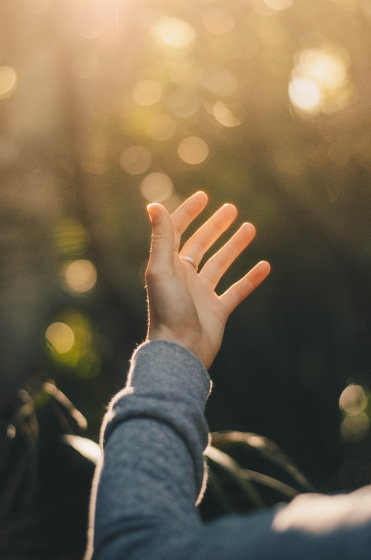What happens when 'touching people' is viewed as taboo?

The new coronavirus infection (COVID-19) has restricted contact with people, and the
Touch is a language we cannot afford to forget | Aeon Essays
https://aeon.co/essays/touch-is-a-language-we-cannot-afford-to-forget
While 'touching people' continues to be restricted, past scientific studies have shown that 'touching people' also has many benefits. For example, hugging someone can reduce stress and increase mutual trust.
What happens when strangers hug each other naked? Experimental movie called --GIGAZINE

Touching the skin lowers heart rate, blood pressure, and the level of the stress hormone cortisol , calms and relaxes, and stimulates the secretion of oxytocin , a love hormone.
In the 1990s, a study was published in a Romanian orphanage about how children who had been barely touched for the first few years of life grew up . It has since been reported that these children have cognitive and behavioral problems and their brain development is unusual. Studies have also shown that people with less social relationships are at higher risk of premature death than those with more social relationships , and it is clear that touching them has a positive effect on human health.
In addition, it has been reported that patients with neuronal anorexia who distort their physical sensations are more uncomfortable with 'relaxing their forearms with a soft brush' than healthy people. .. From these, it is considered that there is a close relationship between 'social contact' and 'mental health'.
In this regard, in Mr. Crucianelli's laboratory, experiments have shown that oxytocin, a love hormone, is a 'sensory adhesive.' Crucianelli et al. (PDF file) conducted an experiment called rubber hand illusion on subjects. In the rubber hand illusion, the subject hides his or her own hand invisible and observes the 'rubber hand' stroking, which imitates the hand of a living person. Previous studies have shown that by stroking a rubber hand, a person feels as if his or her hand is being stroked, but in a new experiment, subjects who received oxytocin Was shown to 'increase the sensation of being stroked.' From the results of this study, researchers conclude that oxytocin increases 'the feeling that a person thinks his body is his own.'

'Tactile' is the first sensation that a person develops. People are born in a state where they have not developed a
For this reason, it is possible for humans to recognize 'touching like touching things' and 'social and emotional touching' as different things at the baby stage. Experiments have shown that 4-month-old babies are more likely to learn a human face when gently stroked by their parents, and researchers say, 'Being caressed is like a'human face'. It will be an opportunity to pay attention to social stimuli. ' In addition, 12-month-old babies identify 'play time' or 'reading time' by 'how to touch the mother', and it is confirmed that touching functions like language. I will .

From these research results, Mr. Crusianelli believes that 'touching people' is viewed as a taboo, which has a great impact on human mental health and health. Many researchers have similar ideas, and some devise new contact methods in pandemics to promote contact with people. Also, even before the outbreak of the pandemic, devices that can transfer kisses and send and receive sensations in real time to people far away, and sensors that remotely convey warmth and softness to people, are in situations where contact with people is restricted. Is also being studied as an alternative to contact. On the other hand, in order to alleviate the feeling of loneliness, it is thought that it is necessary to face-to-face face-to-face rather than online, and Mr. Crucianelli emphasizes that these technologies are just complementary.
Related Posts:
in Science, Posted by darkhorse_log







